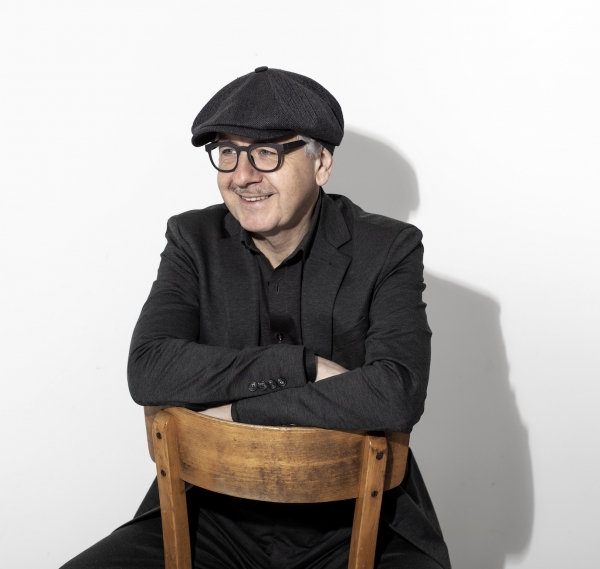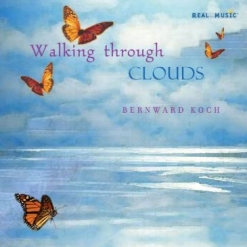I was introduced to the music of German composer/pianist/keyboardist Bernward Koch by one of my adult students close to twenty years ago. He was on the Real Music label at the time, along with Kevin Kern, 2002, and many others. I became a big fan of Bernward's gentle music and have reviewed many of his albums. We did an
interview back in 2009 where we talked about his background, so it was 'way past time to update that interview! Bernward recently released his 15th album,
Tree Tales, on his new label, so we had lots to "talk" about! Enjoy!
KP: Hi Bernward! I was shocked to discover that it's been almost thirteen years since our
last interview. I just re-read that interview, and was reminded that those were also difficult times. Music has a wonderful way of soothing our souls and bridging differences that seem to pull us apart. How are things in Germany now?
BK: Hi Kathy! Yes, it's been a long time, time flies.... I agree that music is a wonderful way to soothe our souls, maybe the best way because it is somehow "invisible" but effective. The war in Ukraine is not so far from Central Europe, so it is a very bad and sad situation. We hope for peace soon. The world has enough problems and does not need war as well...
KP: I couldn't agree more! Is the Covid-19 pandemic under control in Germany yet?
BK: In Germany the numbers of covid pandemic are so-so; I think it is good to be vaccinated.
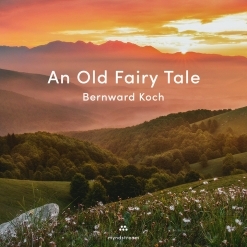
Click on album covers to
go to Kathy's reviews.
KP: You recently released Tree Tales on your new record label, Tree Tales Records. Congratulations on taking the step to create your own label after being with Real Music for a lot of years and other European labels as well. What made you decide to start your own record label?
BK: I've seen many American musicians in our genre of music, colleagues and longtime friends who have started their own labels. Also, we live in the digital age where you can release directly worldwide, especially in streaming. So I said to myself, "go for it," with an international distributor of course (A-Train Entertainment). Tree Tales is also my 15th album and I absolutely believe in it.
KP: Why did you call the label and the new album "Tree Tales"? I know that nature has always been a very large part of your music.
BK: Exactly, for me there is hardly any difference between nature and music, it's kind of one for me. The name "Tree Tales" leaves room for the audience. We need trees to live in many ways, they provide air to breathe, valuable wood, warmth, cool shade and are wonderful to look at and many more. The music of Tree Tales are my tree stories. It also reflects the gentle and strong hilly landscape in which I live and am inspired.
KP: Tree Tales was inspired in part by the books by Herman Hesse. Let's talk about your relationship with Hesse's writing and how it has influenced you over the years.
BK: Hermann Hesse’s work (and his life) has been with me since I discovered him as a teenager, a wonderful experience. It's not about "standardized" views of life, and it's also about the question of what "life" means in the first place. Yes, you can realize yourself as an individual and be yourself, no matter how long it takes. Time does not play a role. In my case, I love music and am grateful to be able to express myself through music.
KP: You mentioned to me that Hesse's book titled Trees was published by Kale Press in the US about two weeks before the release of your album. That's a really interesting coincidence! It seems like a set with both the book and the album would be fantastic! Are there any plans for that?
BK: Well, basically yes, but so far it couldn't be realized, because there are basically two different markets, book and music trade. And it was a complete but good coincidence. But I know that there are connections in the audience with Hesse's book Trees and my Tree Tales music. And that is most important.
KP: You released an improvised solo piano album in 2008, Montagnola: Dedicated to Hermann Hesse, that is named for the place where Hesse made a fresh start after traumatic events of WWI. Tell us about that.
BK: Yes exactly, it was a new beginning for him after a terrible time in many ways. And after this horrible experience Hesse wrote his probably best works like
Siddhartha,
Steppenwolf,
Narcissus and Goldmund and many more,
Trees, too! Of course, you can't compare things that happened in completely different times, but for me, too, it was a kind of new beginning with the
Montagnola album. At that time I had an additional job as a teacher at a music school and was especially successful with young people. We had won prizes and, above all, had a lot of fun with music, Rock, Jazz and Pop. But the rather conservative management didn't like that. At some point, the pressure became greater and greater, I was bullied, then I left and started my own business. I also recorded my most successful album to date,
Walking through Clouds, during this time. So music can also be a kind of magic, which of course involves a lot of work, but it's also fun.
KP: Absolutely! Has Montagnola been your only solo piano album?
BK: Yes. But it is interesting that there are many piano pieces that can be played live on Tree Tales, including solo. At the moment I practice these pieces and plan to give live concerts.
KP: That sounds exciting! I was fascinated to learn that Weber State University in Ogden, Utah, has certified your music as "anti-stress music, particularly suitable for relaxation, meditation, yoga accompaniment, chill-out, sleep problems or general stress management." How did that come about?
BK: Years ago a lecturer in this university wrote me and told me that they have an anti-stress research center there and had very good experiences with my music. I didn't know this institute, but I think that's a great thing and believe that the stress reduction through the right music is becoming increasingly important for people and our world.
KP: Your music has also been effectively utilized by Massachusetts Fallen Soldiers, an organization that treats suicidal U.S. soldiers with post-traumatic stress disorder (PTSD). It must be so rewarding to know that your music is literally saving lives. Did you submit your music for this or did the organization find it on their own?
BK: They discovered the music. A former Navy person had written to me. It came through my album
Walking through Clouds (as well as at Weber State University in Utah). That music can help people in such difficult situations is of course more than wonderful and I am very happy and grateful about it. Music can be a very special drug, extremely careful, effective and healthy.
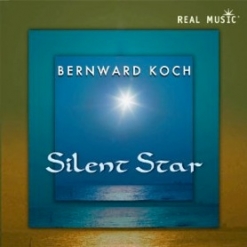
Click on album covers to
go to Kathy's reviews.
KP: Do you have any favorite pieces on Tree Tales or is that liking asking you to choose a favorite child or grandchild?
BK: Good question! Actually, I like all tracks from the beginning to the end. For me it is like a pleasant journey with musical stories that even touch and calm myself down, now that I have some distance from the production.
KP: It seems like during the pandemic, since musicians and composers weren't touring or playing concerts, it was a very creative time for them. Others have said that they lost much of their inspiration. What has it been like for you during the past two years?
BK: Definitely the first point. To be honest, I have never had as many new ideas in my life as during pandemic, especially in 2021. It is a lot of musical material for the future ...
KP: Well, that's exciting! Have you started playing live again yet?
BK: Yes, I had a small concert in a museum together with my brother Christoph (guitar, percussion). It was a lot of fun and was almost like a new experience. That should repeat itself soon.
KP: When we did our earlier interview in 2009, you said that very little instrumental music was being released in Germany. Is that still true?
BK: Let us express it like this: The streaming services have made it so that more people actually hear instrumental music (ambient, New Age, Neo Classic, Film Score, World Music, etc.) than before. In this case, streaming makes access to many styles of music significantly easier. And if you are a real fan, you also like to buy a CD or vinyl.
KP: I've been reviewing quite a few albums from labels in Europe - Blue Spiral Records in Italy and several others. It seems that these labels have become more welcoming to artistic and experimental music than the music industry here in the US. Do you find that to be true?
BK: To be honest, I don't know about that. But it could be. But I think there are basically no limits here due to digitization. Everyone can hear almost everything anywhere in the world at any time, and that's a lot of music.
KP: It seems that most of the arts are being removed from the public schools here in the US and I find that terrifying. Encouragement for creativity seems to be rapidly disappearing from our education system. Is that happening in Europe as well? I sure hope not!
BK: By and large, culture is still present in the education system in Europe. Nevertheless, I see in part the tendency toward standardization and superficiality. There is a lot of good craftsmanship, but less individuality. More and more sounds the same, especially in rock-pop-jazz, and also in classical music. Often it's about making a quick buck. I think it's great that so many wonderful styles of music (jazz, blues, rock 'n' roll, soul, etc.) and gifts to the world come from the United States, but I think that basically comes not from an educational system, but directly from the people and from the streets. And that's what I love about America, this openness and freedom to just be creative: "Just do it" ...
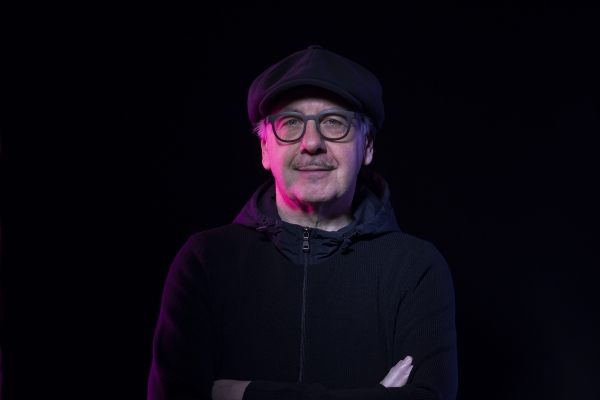
But the lack of creativity could also be a development of the education system, albeit less in the classical music scene. For decades, you can study jazz here in Germany, for example. Here, too, the result is a lot of good craftsmanship - but hardly any innovations and little of one's own. Yet a creative signature of one's own is, along with storytelling, the most important thing in art. It is good and important to have many good musicians, but if they are all completely interchangeable, we are moving towards standardized automation (musicians as well as audience), and that should not be the future. Of course, this is just my view of things, and I'm not giving up hope. The individual can always contribute to new creativity.
KP: Fascinating! Thank you for your insights! It's nice to be able to compare notes - literally!
Are you working on other music projects?
BK: Basically I have a bunch of new ideas that I would like to record, produce and release professionally at some point. Other than that, I have a lot of label work to do at the moment, videos to record, interviews to give, etc. The album
Tree Tales is still young. And as I said, I'm practicing for live concerts at the moment. Many pieces from the new album are suitable for live performance.
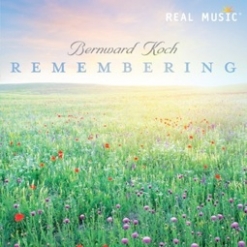
Michael's review
Click on album covers to
go to Kathy's reviews. Click on links to
go to Michael's reviews.
KP: Over the course of your life, who and what have been some of your biggest musical influences (besides Hermann Hesse)?
BK: When I was 16 (1973) I discovered new music that I didn't know until then. And to this day, that formative influence somehow lives on, even though I've evolved, of course. In any case, there were/are many influences, e.g. Antonín Dvořák (From the New World), Bach, Beethoven, Mozart, Ravel, Debussy, Ibert. And Grateful Dead, Weather Report, John Coltrane, Miles Davis, the group Oregon; Kraan, Kraftwerk (both German bands); the Beatles, Pink Floyd, Rolling Stones and many, many more. Jerry Garcia was an incredibly good storyteller, as was John Coltrane in his wonderful way. And Garcia, in turn, was inspired by Coltrane. I listened to their improvised melodies a lot, even today.
KP: That's quite an interesting assortment of artists!
What has been your most exciting musical moment or experience so far?
BK: There were several, but some of the largest live concert moments were the German (Rock-Jazz) band Kraan in 1973, where I later even played along; 1977 Weather Report; 1979 two great jazz festivals with Dollar Brand, Louie Bellson, Tony Williams, Count Basie, Herbie Hancock, Chick Corea, Jan Garbarek, Terje Rypdal…; and in 1997 a great concert by the US band Phish (I love jam bands..).
KP: If you could have any three wishes, what would they be?
BK: Health for my family and the people, and that music like on Tree Tales can help with that; The "abolition" of war and violence (even if that sounds strange, but it starts with a thought..); Common wellbeing of the people and our planet especially for our future.
KP: Is there anything else you'd like to "talk" about?
BK: Yes, thank you very much for the interview, Kathy. It was fun to answer the very good questions.
Many thanks to Bernward Koch for taking the time to chat! For more information about Bernward and his music, be sure to visit
his website and his
Artist Page here on MainlyPiano.com.
Kathy Parsons
July 2022


